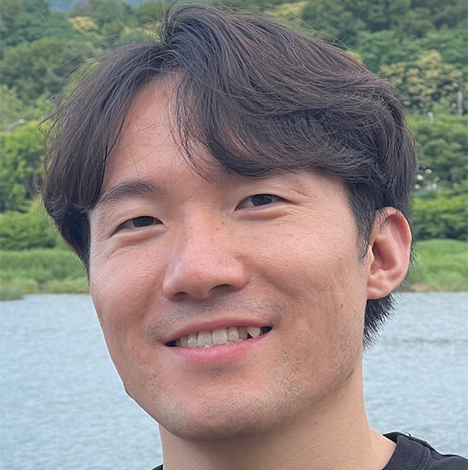The SimCenter Development Team relies on post-doctoral scholars to enhance and develop SimCenter software tools. Their domain expertise and research experience provide valuable insight into natural hazards research workflows that the Center supports. In this article we feature Dr. Justin Bonus and Dr. Fei Pan.
 Dr. Justin Bonus, Postdoctoral Scholar, Software Developer
Dr. Justin Bonus, Postdoctoral Scholar, Software DeveloperDr. Justin Bonus, Postdoctoral Scholar, Software Developer, is supporting the Hydro-UQ Application and documenting its development process. A few tasks will include introducing vetted, Disney-esque numerical approaches into HydroUQ to aid students and researchers in the pursuit of high-fidelity, yet intuitive, natural hazard simulations. Justin elaborates that “Disney, Pixar, Dreamworks, Tencent, and the computer graphics research community at-large developed creative simulation methods to depict snow and sand in recent movies. I apply these methods in an engineering context for our work because they are much faster, which is good for big simulations, and simpler than traditional methods, which is beneficial for a broad user base.”
He will work on developing Hydro-UQ to include digital twins of experimental flume facilities at Oregon State University and University of Washington. Digital twins will be validated against experimental results.
Justin is also working to accelerate SimCenter tools to support users in both fast prototype simulations and massive performance-based engineering workflows that include uncertainty quantification.
Dr. Bonus completed his Ph.D. in civil engineering with a data science focus in the Department of Civil and Environmental Engineering at University of Washington. Justin also earned his Master of Science degree in civil engineering with a geotechnical focus, and a Bachelor of Science in civil engineering, from University Washington. Justin’s research focus and interests include:
 Dr. Fei Pan, Postdoctoral Scholar, Software Developer
Dr. Fei Pan, Postdoctoral Scholar, Software DeveloperDr. Fei Pan, Postdoctoral Scholar, Software Developer, is collaborating with Professor Stella Yu, SimCenter domain expert, on advancing AI techniques for SimCenter’s BRAILS tool, which is used to create enhanced building inventory databases of cities. Specifically, he is working on extracting characteristics of building images by using large-scale language and vision models; the objective of this effort is to minimize the need for human-annotated data. He will also explore the generalization capacity of AI models and their appropriateness to be applied to geographical regions that may have limited building data.
Dr. Pan earned his Ph.D. and Master of Science degrees from the Korea Advanced Institute of Science and Technology, and he earned his Bachelor of Science degree from Xidian University. Fei’s research focus and interests lie in computer vision and machine learning. He is interested in building machine learning algorithms for visual tasks with minimum human supervision. His Ph.D. work included designing domain-adaptive models for semantic segmentation on urban street views. He has also explored self-supervised learning and unsupervised learning techniques for common visual tasks.